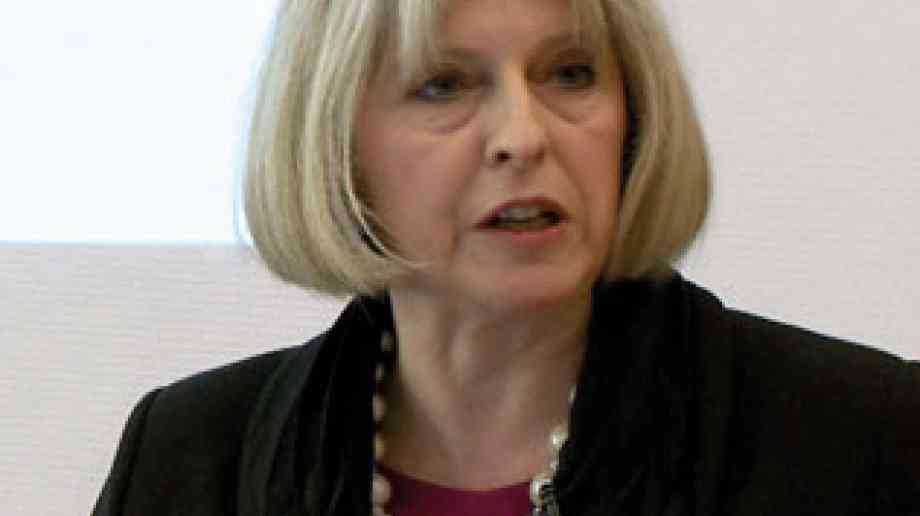Sue Robb of 4Children talks to Julie Laughton and Alison Britton from the Department for Education about the role of childminders in delivering the 30 hours free entitlement.

A local government view on our new PM
Theresa May is expected to succeed David Cameron as Prime Minister, following her success in the Conservative leadership bid and her predecessor’s quick departure from Downing Street.
The Home Secretary, who successfully saw off Andrea Leadsom, as well as Michael Gove, Stephen Crabb and Liam Fox, gained the overwhelming support of the Conservative parliamentary party and is seen by many as a strong leader. But what can we expect from the Maidenhead MP?
Devolution
Greg Clark, current Communities Secretary, has been vocal in his belief that under May’s leadership the role of local government will be ‘vital’ in the country’s progression away from the European Union, with the ‘ambitious agenda’ of devolution likely to continue. He said that the question is ‘not whether we should devolve’ but rather ‘how much, how fast, what powers and when’.
As for Wales and Scotland, May has done little in her previous role to hint at support or lack of towards further devolution - the most we know is that she was against devolving policing powers to Wales. In his first week in office, David Cameron visited Scotland, Wales and Northern Ireland, representing early engagement and good relations. With Scottish First Minister Nicola Sturgeon wanting reassurance over Scotland’s role in Brexit talks, after the country voted in favour of remaining, and voicing the possibility of a second independence referendum, the relationship between May and her counterparts in Scotland, Wales and Northern Ireland will be interesting.
George Osbourne was a key figure in devolution, particularly to regions like Manchester. With May likely to cut his loose and distance herself from him, what she promises for devolution is something to watch out for.
Minister for DCLG
Clark, who was a keen supporter of May’s election bid, is not certain to remain in his current position. Many feel that May might pass the role onto Boris Johnson, a key member of the Leave campaign of the recent EU referendum, who, in his previous role as Mayor of London, has the understanding and background for the brief at hand. Other names in the frame include International Development Minister Justine Greening, who is sure to be part of a reshuffle, although her destination remains unclear, and the lesser known, but trustworthy, Greg Hands.
Brexit
It has yet to be announced whether May will create a new governmental departure to oversea the nation’s departure from the EU. However, she has been clear that, in her eyes, ‘Brexit means Brexit’. Despite voting to remain, May has strongly vocalised that there will be no second referendum, no attempts to rejoin and no attempts to remain.
She has, however, said she will not trigger Article 50 of the Lisbon Treaty, which would formally take Britain out of the EU after up to two years of negotiations, before the end of 2016. It is likely that she will seek informal talks with EU leaders early in her reign.
Loyal campaigner Chris Grayling is likely to be rewarded with a new position and many view the former Secretary of State for Justice as the frontrunner to lead negotiations. A leave campaigner, he has credibility and experience, as well as the backing of May. An outside bet would see George Osbourne, bound to leave his role as Chancellor, given the task, due to his good relations with European ministers.
Northern Powerhouse
While it is unlikely that Northern Powerhouse plans are to be scrapped, it is worth acknowledging May’s leadership speech in which she acknowledged the need for a ‘plan to help not one or even two of our great regional cities but every single one of them’. The Northern Powerhouse may be extended to reach the regions under her guidance.
Housebuilding
In a speech just before she was confirmed as Conservative leader, Theresa May provided an insight into her housing policies, that sparked a positive reaction from commentators.
She said: “Unless we deal with the housing deficit, we will see house prices keep on rising. Young people will find it even harder to afford their own home. The divide between those who inherit wealth and those who don’t will become more pronounced.”
Brandon Lewis, the current Housing Minister, has reiterated that the next leader must ‘stay true to the manifesto’ of ‘starter homes and extending the Right to Buy to 1.3 million people’. What May offered in her speech is an understanding that not only more homes need to be built, but that people are being priced out from owning their homes. With a new leader, but no hint of a general election, it therefore makes sense for May to continue on the previous government’s policies on homes and planning - we need more homes and more stability.
Company Focus
Located in Bromley, Japanese Knotweed Eradication Ltd has been providing solutions in the treatment and removal of Japanese Knotweed (Fallopia Japonica) for over a decade. During this time we have mastered a repertoire of methods, from herbicidal treatments to landscaping solutions, tailored to address the unique challenges our clients face with this pervasive weed.
Event Diary
UKREiiF has quickly become a must-attend in the industry calendar for Government departments and local authorities.
The multi-award-winning UK Construction Week (UKCW), is the UK’s biggest trade event for the built environment that connects the whole supply chain to be the catalyst for growth and positive change in the industry.
Supplier Profiles
Geo Energy
At GeoEnergy Design, we're on a mission to disrupt the traditional way heating and cooling ha
Latest Features
Professor Harith Alani, director of the Knowledge Management Institute at the Open University explains how AI can be used for good and bad.
Alex Lawrence, head of health & social care, techUK sets out techUK’s Five Point Plan for CareTech.












